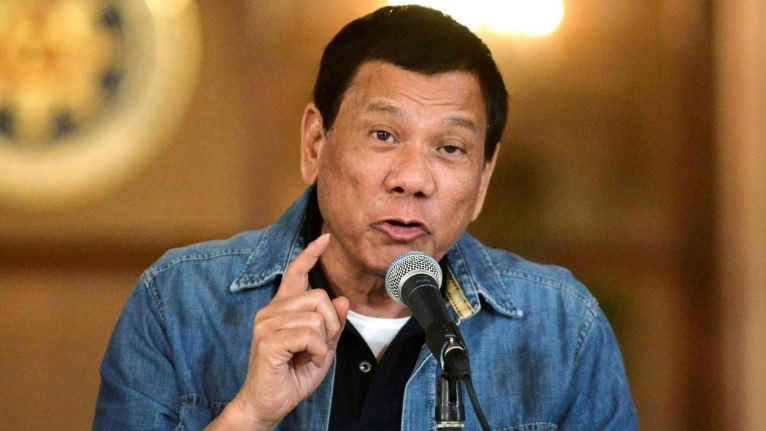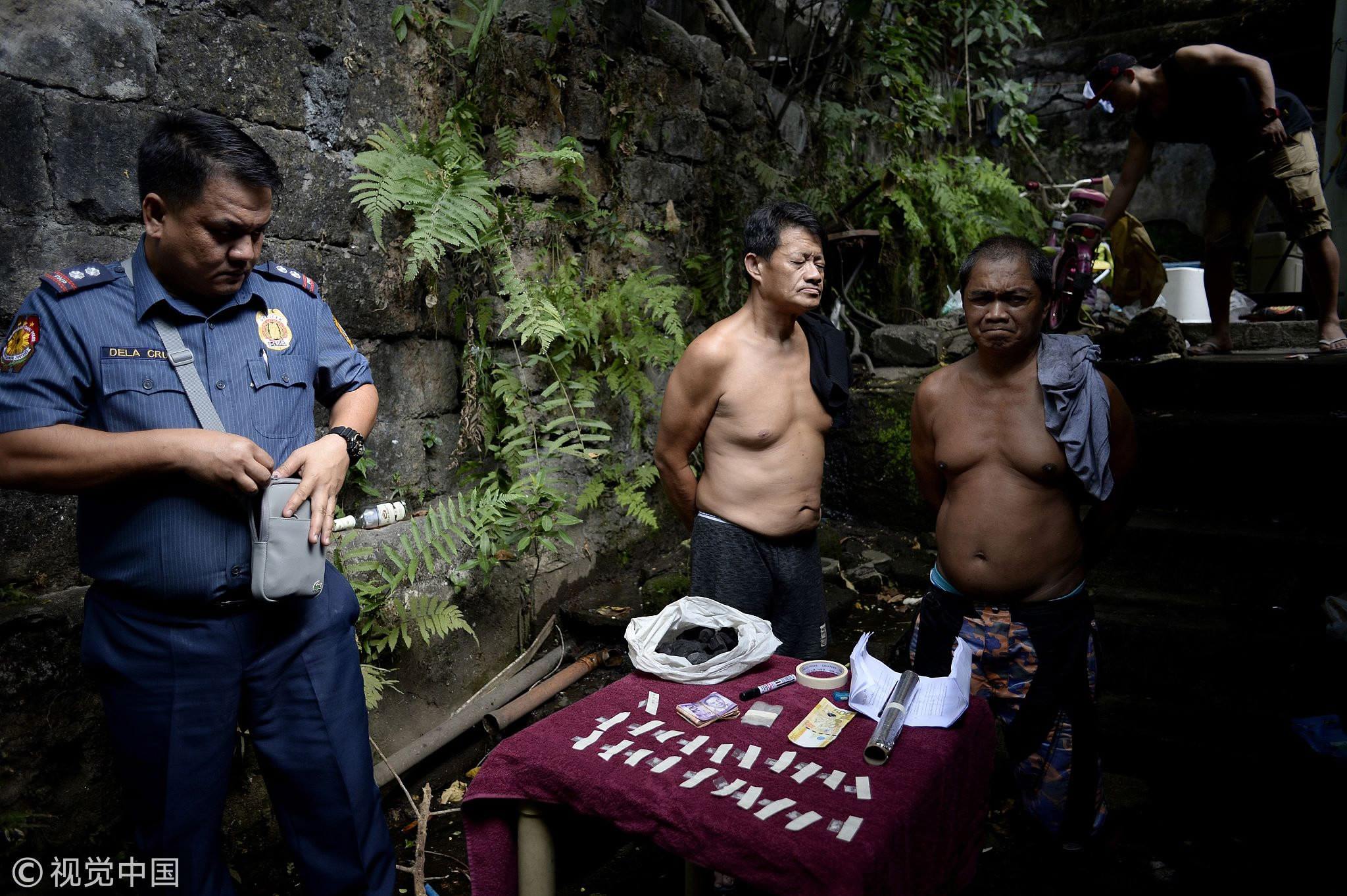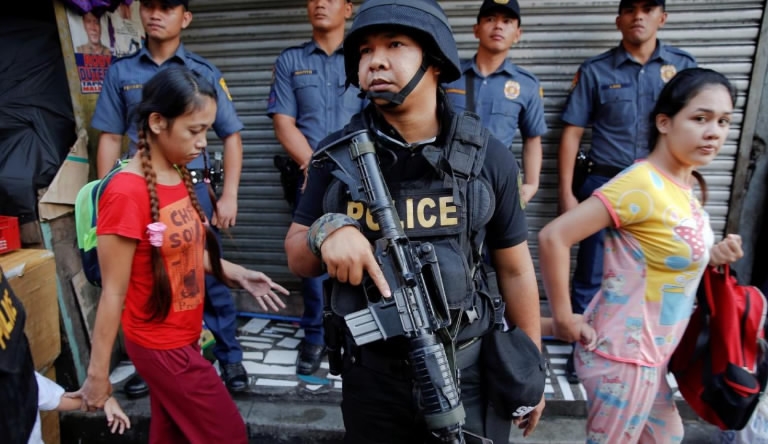
Politics
18:03, 16-Mar-2018
Philippines formally informs UN of withdrawal from Int'l Criminal Court
CGTN

The Department of Foreign Affairs (DFA) of the Philippines said on Friday that the country has officially informed the United Nations (UN) of its decision to withdraw from the Rome Statute of the International Criminal Court (ICC).
In a statement released by the DFA, Foreign Affairs Secretary Alan Peter Cayetano said the withdrawal was formally conveyed in a verbal note that Philippine Permanent Representative handed over to Maria Luiza Ribeiro Viotti, the Chef de Cabinet of UN Secretary-General Antonio Guterres at New York time on Thursday.
A picture released by DFA showed the Maria had received the note verbally.
In his statement explaining Manila's decision to pull out of the Rome Statute, Cayetano pointed to a supposed well-orchestrated campaign to mislead the international community and to slander President Rodrigo Duterte and the Philippines by distorting the human rights situation in the country.

Two alleged drug dealers stand next to drug paraphernalia confiscated during a police operation conducted in Manila on March 15, 2018. /VCG Photo
Two alleged drug dealers stand next to drug paraphernalia confiscated during a police operation conducted in Manila on March 15, 2018. /VCG Photo
"Our decision to pull out of the Court is a principled stand against those who politicize and weaponize human rights," Cayetano said in the statement.
Duterte announced the Philippines' decision to the ICC on Wednesday after the body launched an investigation into the alleged extrajudicial killings related to Duterte's drug war.
However, Duterte said the ICC accusations are "baseless, unprecedented and outrageous attacks."
"There appears to be a concerted effort on the part of the UN special rapporteurs to paint me as a ruthless and heartless violator of human rights who allegedly caused thousands of extrajudicial killings," Duterte said.

A policeman holds his weapon as people pass by during a drug raid in Quezon City, Metro Manila, Philippines, Oct. 12, 2016. /Reuters Photo
A policeman holds his weapon as people pass by during a drug raid in Quezon City, Metro Manila, Philippines, Oct. 12, 2016. /Reuters Photo
Cayetano said, "We are, however, confident that there is no crime or liability to speak of in the first place since our campaign against methamphetamines and other narcotics is a legitimate law enforcement operation designed to protect all Filipinos and uphold the rule of law."
Notwithstanding its withdrawal from the Rome Statute, the Philippine government affirms its commitment to fight against impunity for atrocity crimes and said it "remains resolute in effecting its principal responsibility to ensure the long-term safety of the nation in order to promote inclusive national development and secure a decent and dignified life for all."
The Rome Statute, adopted at a diplomatic conference in Rome on July 17, 1998, is the treaty that established the Hague-headquartered ICC.
The Philippines signed the Rome Statute on Dec. 28, 2000, and ratified and endorsed it in August 2011.
Source(s): Xinhua News Agency

SITEMAP
Copyright © 2018 CGTN. Beijing ICP prepared NO.16065310-3
Copyright © 2018 CGTN. Beijing ICP prepared NO.16065310-3